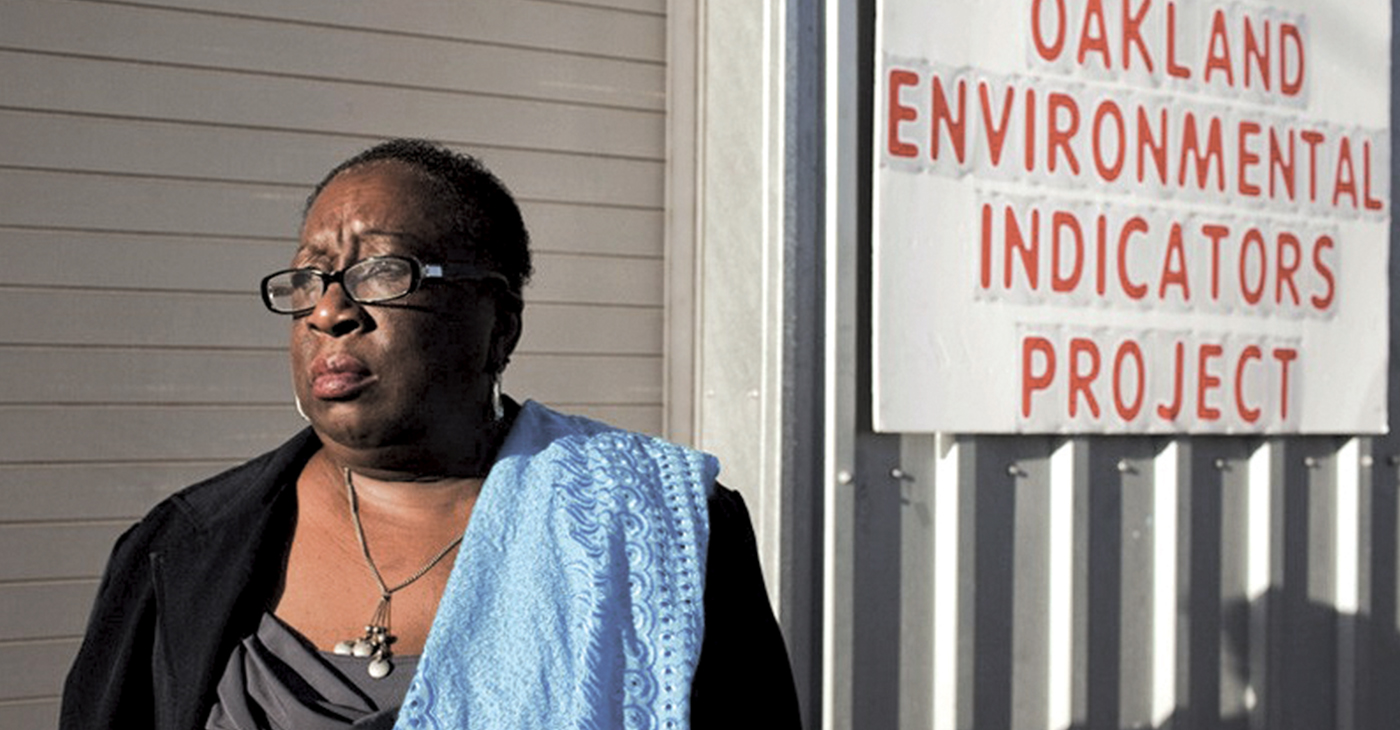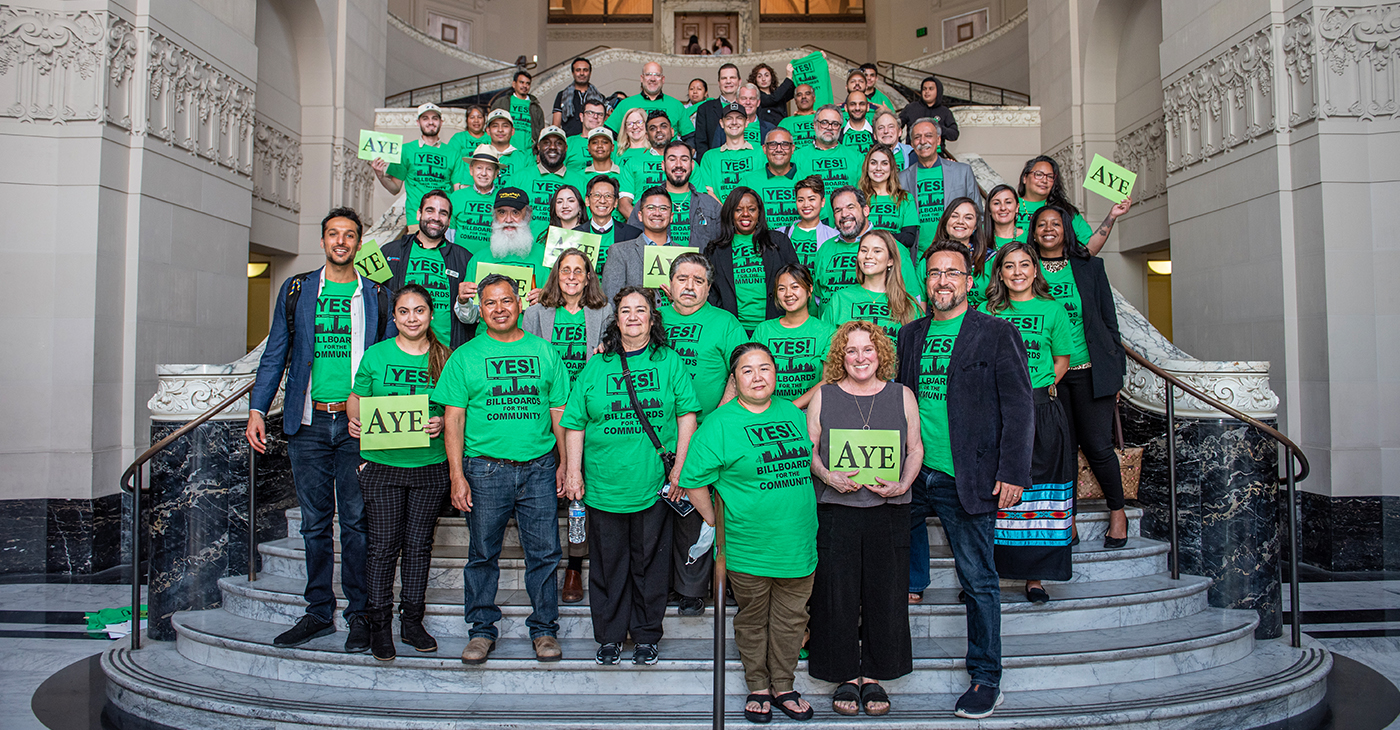Activism
Environmental Advocate Margaret Gordon Turns Against Oakland A’s Development
“We, as a community, should hold everybody to task around the issue of equity,” West Oakland community leader and environmental advocate Margaret Gordon said. “The A’s started off talking about equity and ended up putting [all the costs] back on the city. That’s not equity. Unmitigated environmental issues — that’s not equity. I don’t believe they are going to [build affordable] housing — that’s not equity.”

The former Port Commissioner says, ‘The A’s should adopt fair and equitable benefits to Oakland or stop lying and saying (they’re) doing community benefits.’
By Ken Epstein
Until recently, West Oakland community leader and environmental advocate Margaret Gordon had been on board with billionaire John Fisher’s massive real estate and stadium development project at Howard Terminal, which is public land at the Port of Oakland.
She has now withdrawn her support and is actively opposed to the development. In an interview with the Oakland Post this week, she said she was involved since the beginning several years ago, working with others to produce a community benefits agreement with the A’s, which the A’s were expected to pay for.
But the A’s have gone back on their promises, she said.
“We, as a community, should hold everybody to task around the issue of equity,” Gordon said. “The A’s started off talking about equity and ended up putting [all the costs] back on the city. That’s not equity. Unmitigated environmental issues — that’s not equity. I don’t believe they are going to [build affordable] housing — that’s not equity.”
Gordon, co-founder of the West Oakland Environmental Indicators Project (WOEIP), has served on the Port Commission and has struggled for decades to reduce the impact of industrial pollutants that cause respiratory illnesses and improve the overall air quality in her community.
She said her goal in working with the A’s development was to design social justice and environmental justice projects to support West Oakland, Chinatown, Jack London Square area and Old Oakland, four areas that would be most impacted by the massive project.
“We agreed with the City to sit down and do a community benefits agreement, which included education, environmental improvements, housing, jobs, business development,” she said. “We met for almost two years trying to develop our own agreement with the City and the A’s. We finalized our draft, telling them that this is what we want.”
But then the A’s shifted their position. “All of sudden, the A’s stopped the process. We wanted more conversations as part of negotiations. But there never were negotiations to finalize the community benefits agreement,” she said.
“There were no sit-downs with the A’s or city staff. Never.”
Gordon said she was not encouraged by the role of the mayor and city staff in the process. “I don’t see who is going to hold the A’s feet to the fire to enforce community benefits,” not the mayor, the city administrator nor city staff, she said.
She said city leaders are “so hungry for money and development, as long as it’s not in [their] neighborhood, [they] don’t care,” she said, adding that the A’s and the City should adopt benefits to Oakland that are “fair and equitable, or stop lying and saying you’re doing community benefits.”
She said poor people, African Americans, Latinos and others are not going to benefit from this project. “I don’t see them building affordable housing next to the million-dollar townhouses. I just don’t see it.”
People took tours of the Howard Terminal area in December, and it dawned on them that the plans were to create a “whole new city within Oakland,” an exclusive gated new city for rich people
“They decided to release the Final Environmental Impact Report (EIR) during the holidays, minimizing public input,” she said. “The staff, the City of Oakland, they obviously don’t care [about community benefits], otherwise they wouldn’t have written the EIR the way they did,” said Gordon.
“They keep talking about equity, but they’re not practicing equity. This [Environmental Impact Report] is evidence of that. This is all problematic.”
Many of the needed mitigations have not been addressed, Gordon continued. The stadium would be built where thousands of huge semi-trucks are parked now at Howard Terminal, but the City and the A’s still haven’t said where said where the truck parking will be moved, meaning they may be going back onto city streets, polluting residential neighborhoods.
Nor have the officials offered solutions to the large traffic jams that will be produced by the development.
Not only will Oakland residents not get community benefits, they will also end up footing the bill for a lot of the project, Gordon continued.
“We the public are going to end up paying for the infrastructure,” she said. “This is going to use public money.” Over $800 million in public funds will be used on the project.
“The A’s should be paying for this. The rich people who are going to be moving over there should be paying for this,” said Gordon.
“I am not surprised to hear that the A’s have reneged on promises made to the community,“ said Paul Cobb, publisher of the Oakland Post. “The A’s want hundreds of millions of taxpayer money, but they don’t want to pay for community benefits like every other developer does.
“They renege on affordable housing and then turn around and bully our elected leaders by saying if they don’t get what they want, they will leave. Our elected leaders should end this drama now. They need to focus on jobs, homelessness, public safety and real issues affecting Oakland residents, not the ongoing give-and-take sham game played by the A’s.”
Activism
Oakland Post: Week of July 24 – 30, 2024
The printed Weekly Edition of the Oakland Post: Week of July 24 – 30, 2024

To enlarge your view of this issue, use the slider, magnifying glass icon or full page icon in the lower right corner of the browser window. ![]()
Activism
Oakland Post: Week of July 17 -23, 2024
The printed Weekly Edition of the Oakland Post: Week of July 17 -23, 2024

To enlarge your view of this issue, use the slider, magnifying glass icon or full page icon in the lower right corner of the browser window. ![]()
Activism
Community Celebrates Historic Oakland Billboard Agreements
We, the Oakland Billboard Economic Development Coalition, which includes Oakland’s six leading community health clinics, all ethnic chambers of commerce, and top community-based economic development organizations – celebrate the historic billboard agreements approved last year by the Oakland City Council. We have fought for this opportunity against the billboard monopoly, against Clear Channel, for five years. The agreements approved by Council set the bar for community benefits – nearly $70 Million over their lifetime, more than 23 times the total paid by all previous Clear Channel relocation agreements in Oakland combined.

Grand Jury Report Incorrect – Council & Community Benefit
We, the Oakland Billboard Economic Development Coalition, which includes Oakland’s six leading community health clinics, all ethnic chambers of commerce, and top community-based economic development organizations – celebrate the historic billboard agreements approved last year by the Oakland City Council. We have fought for this opportunity against the billboard monopoly, against Clear Channel, for five years. The agreements approved by Council set the bar for community benefits – nearly $70 Million over their lifetime, more than 23 times the total paid by all previous Clear Channel relocation agreements in Oakland combined.
Unfortunately, a recent flawed Grand Jury report got it wrong, so we feel compelled to correct the record:
- Regarding the claim that the decision was made hastily, the report itself belies that claim. The process was five years in the making, with two and a half years from the first City Council hearing to the final vote. Along the way, as the report describes, there were multiple Planning Commission hearings, public stakeholder outreach meetings, a Council Committee meeting, and then a vote by the full Council. Not only was this not hasty, it had far more scrutiny than any of the previous relocation agreements approved by the City with Clear Channel, all of which provide 1/23 of the benefits of the Becker/OFI agreements approved by the Council.
- More importantly, the agreements will actually bring millions to the City and community, nearly $70M to be exact, 23 times the previous Clear Channel relocation agreements combined. They certainly will not cost the city money, especially since nothing would have been on the table at all if our Coalition had not been fighting for it. Right before the decisive City Council Committee hearing, in the final weeks before the full Council vote, there was a hastily submitted last-minute “proposal” by Clear Channel that was debunked as based on non-legal and non-economically viable sites, and relying entirely on the endorsement of a consultant that boasts Clear Channel as their biggest client and whose decisions map to Clear Channel’s monopolistic interests all over the country. Some City staff believed these unrealistic numbers based on false premises, and, since they only interviewed City staff, the Grand Jury report reiterated this misinformation, but it was just part of Clear Channel’s tried and true monopolistic practices of seeking to derail agreements that actually set the new standard for billboard community benefits. Furthermore, our proposals are not mutually exclusive – if Clear Channel’s proposal was real, why had they not brought it forward previously? Why have they not brought it forward since? Because it was not a real proposal – it was nothing but smoke and mirrors, as the Clear Channel’s former Vice President stated publicly at Council.
Speaking on behalf of the community health clinics that are the primary beneficiaries of the billboard funding, La Clinica de la Raza CEO Jane Garcia, states: “In this case, the City Council did the right thing – listening to the community that fought for five years to create this opportunity that is offering the City and community more than twenty times what previous billboard relocation agreements have offered.”
Oakland Billboard Economic Development Coalition
| Native American Health Center | La Clínica de la Raza | West Oakland Health Center |
| Asian Health Services | Oakland LGBTQ Center | Roots Community Health Center |
| The Unity Council | Black Cultural Zone | Visit Oakland |
| Oakland African American Chamber of Commerce | Oakland Chinatown Chamber of Commerce | Oakland Vietnamese Chamber of Commerce |
| Oakland Latino Chamber of Commerce | Building Trades of Alameda County | (partial list) |
-

 Arts and Culture3 weeks ago
Arts and Culture3 weeks agoRooted in Tradition: The Intricate History of Black Hair Braiding
-

 Bay Area4 weeks ago
Bay Area4 weeks ago“I Will Not Be Bullied,” Says Oakland Mayor Sheng Thao
-

 Bay Area2 weeks ago
Bay Area2 weeks agoPG&E Increases Rates While Bay Area Households Are Struggling to Stay Afloat
-

 Business3 weeks ago
Business3 weeks agoGov Newsom: Raising Fast Food Minimum Wage to $20 Pays Off as Jobs Multiply in Industry
-

 Activism4 weeks ago
Activism4 weeks agoOpponents of Mayor Sheng Thao Are Calling on Her to Resign Following FBI Raid
-

 Bay Area2 weeks ago
Bay Area2 weeks agoJuneteenth Mass Shooting Suspect Charge with Multiple Counts of Felony Assault by Alameda County DA Pamela Price
-

 Community1 week ago
Community1 week agoHundreds Come to Jehovah’s Witnesses’ Assembly Hall for Three-Day Program of ‘Good News’ in Fremont
-

 Activism4 weeks ago
Activism4 weeks agoOakland Coliseum Sale to AASEG: A Model for Community Development and Inclusion



















































